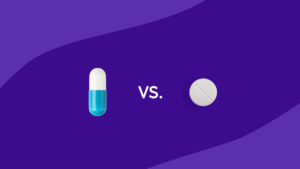People With Mental Health Conditions Should Be Screened for Heart Disease Earlier
People with Mental Health Conditions Should Be Screened for Heart Disease Earlier
Overview of the Findings
A recent study reveals that Americans with serious mental health conditions, such as schizophrenia, bipolar disorder, and schizoaffective disorder, face a significantly higher risk of heart disease at a much younger age than previously thought. Experts recommend that individuals with these conditions should undergo heart disease screenings earlier in life, particularly in their early adulthood, to help prevent cardiovascular complications.
Why the Early Screening is Crucial
People with severe mental health conditions tend to die 10 to 20 years earlier than those without such conditions, with heart disease being the primary cause of these premature deaths. Researchers, including psychiatrist Dr. Rebecca Rossom, believe that the heightened risk of heart disease could be detected earlier than the standard screening age of 40, which could allow for early intervention and preventive measures.
Dr. Rossom and her team analyzed healthcare data from nearly 600,000 adults and discovered that individuals with schizophrenia, bipolar disorder, or schizoaffective disorder were at an increased risk for cardiovascular disease as early as their 20s—well before the conventional screening age.
The Role of Socioeconomic Factors in Mental Health and Heart Disease
The link between mental illness and heart disease can be attributed to several factors, including socioeconomic conditions like access to healthcare, food quality, and lifestyle choices. Poorer neighborhoods often lack access to healthy food, tobacco cessation programs, and quality healthcare, which can exacerbate the cardiovascular risks for those with severe mental health conditions.
Dr. McWelling Todman, a psychology professor at The New School in New York, emphasizes that these risk factors reflect broader social justice issues, highlighting the disparities in healthcare access and living conditions based on income and location. He suggests that these factors play a significant role in the elevated cardiovascular risk observed in individuals with severe mental illnesses.
Cardiovascular Risk Factors and Mental Health Conditions
Cardiovascular risk is typically assessed through questionnaires that gather information on age, gender, height, weight, blood pressure, cholesterol levels, smoking habits, diabetes, physical activity, and diet. Despite the availability of these tools, Dr. Rossom points out that they are not frequently used, especially for people with serious mental health disorders. Increasing awareness and utilization of these tools by healthcare providers is essential to address the hidden risks of heart disease in this vulnerable population.
Research Methodology and Key Findings
The study conducted by Dr. Rossom’s team utilized medical records from individuals who visited primary care facilities in Minnesota and Wisconsin between 2016 and 2018. About 11,000 of the records analyzed belonged to individuals with serious mental health conditions. The study found that young adults with conditions like schizophrenia, bipolar disorder, or schizoaffective disorder were significantly more likely to be at high risk for cardiovascular disease, with 25% of them identified as high-risk, compared to just 11% of their peers without mental health diagnoses.
Defining Severe Mental Illness
Severe mental illness is characterized by significant impairments in a person’s ability to function in daily life, affecting their social, occupational, and personal activities. In 2020, approximately 6% of U.S. adults were diagnosed with a severe mental illness. These individuals are at greater risk of cardiovascular disease compared to those without such diagnoses.
The Importance of Early Detection and Intervention
Dr. Rossom advocates for the early assessment of cardiovascular risk starting at age 18, particularly for those with severe mental health conditions. Early screenings can help healthcare providers detect risks and initiate preventive measures, such as smoking cessation or effective management of high blood pressure, which may significantly reduce the risk of heart disease later in life.
Challenges and Limitations in the Research
While the research is groundbreaking, it has limitations. The study focused on data from outpatient visits rather than hospitalized patients, which may not fully capture the complexities of those with severe mental health conditions. Additionally, the study did not account for other factors such as income, education, and access to mental health care, which could also influence cardiovascular risk.
Socioeconomic and Medication-Related Factors
Dr. Todman highlights that many of the risk factors associated with cardiovascular disease in individuals with severe mental illness—such as smoking, poor diet, and obesity—are compounded by the stress of living with a chronic mental health condition. Additionally, the medications used to treat these conditions can sometimes contribute to cardiovascular risk. Addressing these factors in a comprehensive and integrated manner could help reduce the overall cardiovascular burden in this population.
The Need for Comprehensive Healthcare Integration
The findings underline the importance of integrating mental health care with physical health care to ensure that patients receive the full spectrum of care needed to manage both their mental and physical health. Reducing stigma around mental illness and improving healthcare access could encourage better adherence to preventive measures for heart disease among individuals with severe mental health conditions.
Conclusion
The research emphasizes the need for earlier cardiovascular screenings in people with severe mental health conditions to help prevent heart disease and improve overall health outcomes. By raising awareness among clinicians and patients, and integrating mental health care with physical health care, we can better address the complex relationship between mental illness and heart disease.
FAQs
-
How is cardiovascular risk assessed? Cardiovascular risk is typically assessed through questionnaires that evaluate various factors such as age, weight, blood pressure, cholesterol levels, lifestyle habits, and family medical history. These assessments can help predict the likelihood of developing heart disease.
-
What classifies as a severe mental illness? Severe mental illness refers to mental, emotional, or behavioral disorders that significantly impair a person’s ability to function in daily life, affecting work, relationships, and self-care. Conditions such as schizophrenia, bipolar disorder, and schizoaffective disorder are examples of severe mental illnesses.
Expert Tips
-
Prioritize a balanced diet, regular exercise, and smoking cessation to reduce cardiovascular risks.
-
Encourage regular check-ups for individuals with severe mental health conditions to monitor both mental and physical health.
-
Integrate mental health services with cardiovascular care to provide comprehensive treatment for patients.







